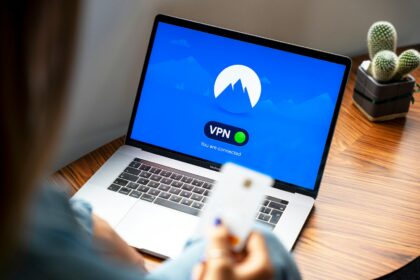Are you curious about protective measures that keep personal and business data safe online? Do you want hands-on ways to guard digital secrets from hackers and fraud? Maybe you’re a student at Cal Poly Pomona, or simply drawn to an industry that grows with every breach headline. Either way, the Cal Poly Pomona Cybersecurity Club welcomes you. The club serves as a workshop. It offers lessons that range from basic password security to real-world penetration tests. It pairs members with mentors. It hosts guest pros. It gives everyone practice with the same tools employers value. Most important, it bonds future defenders through projects, games, and late-night code sprints. It turns theory into muscle memory.
The Cal Poly Pomona Cybersecurity Club is more than a student organization. It feels like a shared mission. You can scale the technical ladder while laughing over coffee. You can trade tips in a Discord channel. You can squash bugs in friendly Capture the Flag challenges. Whether you can already script a scan or are still learning what a firewall does, the door is open. Your questions matter. Passion for problem-solving is what unites everyone. That passion maps straight to jobs, internships, and trade-show opportunities. It helps secure tomorrow’s networks.
Why Cybersecurity Matters, Now More Than Ever
Let’s begin by breaking down what we mean when we say cybersecurity. It’s the effort to keep computer systems safe. It keeps networks safe. It keeps software safe. It keeps data safe from unwanted intrusions. Call them digital break-ins, malware, or phishing scams. Picture a sturdy lock on your front door. Good cybersecurity is that lock. Only it’s polished and updated every week instead of every year. When the lock is strong, your email, bank balance, and private work files stay where they belong.
So why have nightly news headlines suddenly turned cyber green? Because almost every part of daily life now lives online. We scan grocery lists into an app. We pay rent via a website. We share photos in the cloud. Hospitals monitor patients through networked sensors. City utilities track leaks with smart meters. Behind the scenes, those bits and bytes add up to mountains of data. All of it needs protection. Someone somewhere wants to peek at or sabotage it. They want profit or mischief. A single weak password can tip a whole system sideways. Cyber criminals know it. Cybersecurity folks work to block that domino effect. When they succeed, our connected routine keeps rolling along.
Think about your online bank login. You want the money there to stay safe, right? You also want no one but you to see your name, address, and history. That privacy is guarded every second by something you rarely see. It’s cybersecurity code running beneath the surface. Now picture a nearby hospital. Every MRI scan, allergy note, and insurance file sits on big copper wires and blinking servers. If that medical data slips to a criminal, patients pay the price. So, firewalls and encryption let doctors grab what they need at 2 A.M. without putting anyone in danger. Your own living-room gadgetry needs quiet protection, too. The doorbell that waves back. The thermostat that learns your schedule. A lazy hacker should not be able to hear the baby monitor. They should not lock you out of the house. Cyber tools keep those devices honest. They stop strangers before they even knock. In short, security blueprints touch every screen we swipe. They touch every wire we wave through daily life. But the threats change angle every morning. That makes the job far more than a piece of software. Trained experts stay late. They study patterns. They build shields. They keep tomorrow’s attacks at bay. They are the firefighters of the code. When smoke appears on the grid, we count on them to know where to point the hose. That is why universities, companies, and even city halls hunt for talent. It is also why clubs, meet-ups, and student labs across the nation have begun buzzing with the same question: Who wants to defend the next digital decade?
What the Cal Poly Pomona Cybersecurity Club Offers Its Members
The Cal Poly Pomona Cybersecurity Club runs on that very spirit. Over here, membership goes beyond sitting in folding chairs every other Tuesday. Though the pizza is good. You will crack open Linux inside a mini workshop. You will swap flaws of the latest ransomware with a mate. You will watch a pro break down a phishing email in real time. Project nights let you build a tiny server in the lab. You can lock it with learned passwords. Then you test your own work until it squeaks for weaknesses. Those messy, hands-on drills give real-world muscle. Teams chase mock CTF problems, movie-style. They race clocks for prizes while, low-key, acquiring logic the job world prizes. Industry talks, mock interviews, and résumé check-ups slip in, too. They are borrowed straight from the campus career office. Even the quiet Slack page hums with job leads, tool tips, and weekend study plans for those who want to dive deeper.
Learning Opportunities: Workshops and Guest Speakers
The club runs regular hands-on workshops. They walk members through a wide range of topics. Sessions might start with foundational material. Then they move into more specialized techniques. So everyone can find something useful. One week the agenda could focus on network security. The next it might shift to ethical hacking. Or the inner workings of modern cryptography. Activities are practical rather than purely lecture-based. Participants practice each skill as they learn it. This way responsibility to do the work is shared. Members leave with both know-how and confidence. They can use it outside the room.
Beyond workshops, the club lines up guest speakers. They currently hold jobs across the cybersecurity field. These experts explain the kinds of problems they tackle every day. From defending against ransomware to securing cloud infrastructure. They also take time to discuss emerging threats. They talk about the tools being developed to counter them. So attendees hear what matters right now in industry. Best of all, speakers pass along career tips. These are born from real experience. Whether that means details on internship searches. Advice about building a personal portfolio. Or stories highlighting the value of curiosity and continued learning. Members then get to ask questions on the spot. This creates an informal, two-way conversation. No textbook can replicate it.
Competitions: Capture The Flag (CTF) and Hackathons
Being part of the club means diving head-first into friendly competitions. One of our favorites is the Capture The Flag, or CTF, event. What exactly is a CTF? Picture a big, online treasure hunt. It’s designed by security fans. Groups of volunteers work through dozens of mini-challenges. Each one acts like a digital puzzle. Maybe you dig through web code to find a hidden weak spot. You might crack a scrambled message. Or even reverse-engineer a tiny app to fish out secrets. When you nail one of these tasks, you snag a little token called a flag. The squad that gathers the most flags before time runs out gets to take home bragging rights. And sometimes fun prizes. CTFs not only let you see how far you have come. They also shove you into brand-new corners of the craft. They show you tricks you had never considered.
The club also invites everyone to jump into hackathons. These events turn a big room into a buzzing workshop. Groups form. Ideas collide. Together, solutions take shape. During a security-themed sprint, you’ll chase bugs. You’ll sketch code. Or you’ll wire a new tool that blocks threats. Other teams might design a dashboard. They might test a patch. Or build a bot that spotlights weak passwords. It’s pressure-cooked fun: caffeine flows, laptops hum, and deadlines loom. Yet that same buzz pushes you to think fast. It helps you share knowledge. It refines every line of code on the fly. The finished project may not win first place. But the experience is pure gold. You walk away with working software. You gain deeper skills. You have stories to tell recruiters later. Most employers know hackathon work isn’t polished classroom code. It’s real-world problem solving. It’s done in less time than a coffee break. Because of that, the Cal Poly Pomona Cybersecurity Club strives to put members in those charged, high-stakes labs. Agents protecting networks later in their careers will always remember the nights the club spent feverishly patching a test domain before sunrise. And so will any boss reading a news blurb about a sloppy data leak two hours later.
Networking: Connecting with Peers, Faculty, and Industry
Networking matters in almost every field. But in cybersecurity, who you know is sometimes as useful as what you know. The club pulls together students, faculty, and industry pros. They meet in events where name tags become the least important accessory. During meet-and-greets or guest lectures from an analyst at Google or a red-teamer from Lockheed Martin, the conversation ranges from the latest breach to the best pizza on campus. Casual talk today can lead to a study group tomorrow. It can lead to a summer internship next month. Or a long-lasting friendship that survives late-night patch marathons. Members swap GitHub handles. They organize weekend jams in the lab. They troubleshoot each other’s projects over Discord. They keep an eye out for openings. They want everyone on the team to win. That peer network is resilient. When mid-terms hit or life throws a curveball, you find a buddy who already posted notes. Or a junior who can cover your shift. Beyond the bookmarks and LinkedIn invites, it’s the encouragement, the inside jokes, and the quiet confidence. Someone else already solved the same firewall hassle that really sticks. Each event cements an invisible net. It’s wrapped around every new member. One that echoes far beyond Cal Poly’s broad sidewalks. And the blinking lights of its Strat Labs.
You also link up with helpful faculty members around campus. These professors live and breathe their research. They steer the club. They offer steady mentorship. They know the challenges students face. Because students ask, they share handy tips. They scout early projects. A simple chat today can open a summer lab spot tomorrow. Keeping in touch later gives faculty a reason to write that glowing reference. Or lend career advice long after graduation.
Career Development: Resume Building and Interview Prep
They regularly set up mock interviews. During these sessions you field tricky questions. Afterward you receive honest, helpful feedback. That repetition builds the confidence you need. It also sharpens the way you frame answers. By the end, you feel ready for the real panel. Alumni often mention landing internships or jobs soon after. Almost every one points back to that practice. The Cal Poly Pomona Cybersecurity Club teaches more than technical skills. It spends just as much time teaching you to get hired.
Who, exactly, can join the Cal Poly Pomona Cybersecurity Club?
Many people assume the group is meant for CS majors. Others think only seasoned coders will fit in. The reality is far more open. The club welcomes students from any background. Your major, experience level, or GPA simply do not matter. At the core, the only requirement is curiosity. If you want to learn about cybersecurity, you already belong.
The club is made up of people from all sorts of majors and experiences. You’ll find a few computer science students sitting next to engineering folks. Business majors catching up with humanities minors. Everyone exchanging tips and tricks. Cybersecurity touches so many areas. It really benefits from lots of viewpoints. Some members are natural talkers. They can explain tricky topics. Others love hunting down problems in code. A few are numbers whizzes. They spot patterns almost without trying. Every one of those strengths matters. The club tries to make space for all of them. It’s an open-minded team. It wants every member to learn something new. More important, it wants them to feel like they belong. So if you’ve got curiosity and a willingness to help, jump in. See what the Cal Poly Pomona Cybersecurity Club has for you.
A Day in the Life: Typical Activities and Meetings
What does a typical week look like for a club member? It varies. But there are common activities. The club usually holds weekly meetings. These meetings might feature a guest speaker. They might include a hands-on workshop. They might be a planning session for an upcoming competition. Sometimes, it’s just a social gathering. Members can chat. They can share ideas. They can work on projects together.
Even when there is no official agenda, club members are constantly teaming up in different spaces across campus. You can find them huddled together in the computer lab dissecting code. Or at a table in the student lounge cracking a particularly stubborn CTF puzzle. Others are rehearsing slides for a presentation. They run through demo scripts. Or simply quiz each other on the latest malware signatures. Veteran members make a point to sit with newcomers. They patiently untangle the finer points of cryptography or networking. When someone hits a wall, another jumps in with a tip. A cheat sheet. Or just a word of encouragement. Picture a circle of friends. They happen to be nuts about cyber defense. That pretty much sums up the feel of the Cal Poly Pomona Cybersecurity Club.
Success Stories and Inspiring Anecdotes
Time and again, we watch members translate shared late nights into genuine victories. Internships with household industry names? Check. Full-time roles before graduating? Yup. A pair of enterprising alums even rolled their own bug-bounty startup after finding their niche here. Each success reinforces what the club is about: learning, networking, and turning curiosity into real-world impact.
Meet Sarah. She walked into the campus cybersecurity club as a nervous freshman. She barely knew what a firewall was. Honestly, the technical talk around her sounded more intimidating than exciting at first. Curiosity, though, tugged at her. So she kept showing up. She tried not to fade into the background. When workshops rolled around, she sat front and center. She scribbled down every word. Whenever a concept slipped past her, she asked, over and over, until it clicked. The seniors, noticing her grit, pulled her into practice sessions. They hooked her up with CTF challenges. They cheered her tiny victories. Little by little, the puzzles stopped feeling impossible. By junior year, she was not just a player. She was captaining the club’s national CTF squad. They cracked enough codes to break the top-ten tier. That finish, plus the network she had built, landed her a summer stretch at a respected tech firm. Fast-forward and Sarah now defends client systems as a full-time security analyst. Every few months she swings back to the club. She trades war stories and tips with newcomers. Her tale proves that persistence matters. The club was the launch pad. Its guidance, the wing that carried her forward.
“The Cal Poly Pomona Cybersecurity Club changed my life. I arrived with no technical background, yet I was eager to learn. Through hands-on workshops, friendly mentorship, and a welcoming community, I slowly built real skills. Now I spend my days at a Fortune 500 company, defending networks, and it feels like a dream. The club really lets anyone grow from novice to trusted professional.”
— Alex Chen, Club Alumnus, Security Engineer at a Fortune 500 Company
Think about David. He was quiet. He was great at coding. Yet he was terrified of public speaking. He wanted a cybersecurity career. But he knew clear communication mattered. The club gently pushed him. He began with short updates at study nights. Then he moved to leading workshops. He explained tricky ideas to beginners. Each small victory boosted his confidence. When interview day came, he spoke naturally. He nailed the technical tests. He got the offer. He still says the club’s encouragement was as important as any coding lesson. If you want both hard and soft skills, this is the place to be.
Impact on Cal Poly Pomona and the Broader Community
The Cybersecurity Club at Cal Poly Pomona does more than serve its own members. Its reach spills over into campus life. By hosting talks, workshops, and hands-on exercises, the group raises campus-wide awareness of cyber risks and safe practices. That growing emphasis on security ripples through classrooms, labs, and even dorms. It nudges students and faculty to think defensively. In turn, the club helps draw applicants. They want an active, practical cybersecurity education. A robust student organization in this field signals to prospective students that the university takes digital defense seriously. It boosts both enrollment and prestige.
Off campus, club members routinely volunteer their time and know-how. They help local non-profits. They assist small businesses. They aid community centers that lack in-house tech staffs. They audit websites. They set up stronger passwords. Or they lead public forums on phishing scams and safe social media habits. Each outreach project reinforces a key lesson: cybersecurity is as much about keeping people safe as it is about networks and code. By bridging the gap between technical expertise and everyday understanding, the club lives out Cal Poly Pomona’s learn-by-doing motto. It builds confidence, responsibility, and a stronger, more informed digital community.
How to Get Involved with the Cal Poly Pomona Cybersecurity Club
Curious about campus cybersafety? Or dreaming of shielding data for a living? Jumping into the Cal Poly Pomona Cybersecurity Club is a snap. First, swing by their website. Or scan their Twitter and Instagram feeds. They post meeting times, workshop invites, competition news, and ask-for-help emails there every week. If scrolling isn’t your thing, show up at a general meeting. They’re open to all majors and never tedious. You’ll hear what projects are running. You’ll trade tips with seasoned members. You’ll glimpse the club’s friendly rhythm.
No need to worry about being a pro. Genuine curiosity is the only admission requirement. The team loves sharing knowledge. They will guide you through code reviews. Linux drills. And even mock-red-team attacks. By just stepping through the door, you start building skills. Friendships. And a reputation as someone who cares about a safer internet. The world of bits and bytes can seem vast. But with every question you ask, the path ahead becomes clearer. Why not take that small step today? The Cal Poly Pomona Cybersecurity Club is ready to welcome you on board.
Conclusion: Your Future in Cybersecurity Starts Here
The Cal Poly Pomona Cybersecurity Club is more than an activity on campus. It is a community of learners and doers. Members pick up technical skills through workshops. They test themselves against real-world challenges in friendly competitions. They get to know industry experts. These experts often become mentors. The club is open to everyone. Curious freshmen. Seasoned transfers. Even non-majors who want to see what the buzz is about. This means fresh perspectives are always welcome. By working together on projects and outreach, members not only sharpen their own talents. But they also help build a safer online environment for people outside the university. If you study at Pomona or are thinking about it, and security problems keep you up at night in either a technical or a creative way, you should seriously consider signing up. Join the Cal Poly Pomona Cybersecurity Club. Start your journey today. Protect the digital future.
























